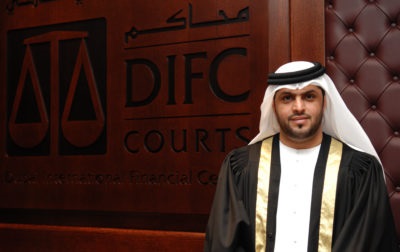

19 Mar 2017

When people think of legal proceedings they may imagine drawn out cases, involving huge costs. Less awareness is often drawn to alternative dispute resolution (ADR) options. ADR denotes different methods of resolving disputes without going to litigation, the most notable being arbitration and mediation, both of which are usually faster and more cost-effective for all parties involved.
ADR and the ability to provide better access to justice through an increase in dispute resolution methods is one of the main topics that was discussed at the Global Pound Conference on March 14th in Dubai.
At the conference, Judge Ali Shamis Al Madhani of the DIFC Courts moderated a panel discussion centred around promoting better access to justice. Joining him in this discussion was Faridah Sarah from Galadari Law firm, Mohmoud Mostafa of Pinsent Masons, and Dr. Sharif Mohamed Ghanam with the Dubai Police College Faculty. Panelists overwhelmingly agreed that alternative dispute resolution options provide better access to justice by creating choice, and focused the discussion on elements responsible for creating and promoting additional alternatives.
Panelists’ discussed the role of Governments and Ministries of Justice and how they can strengthen ADR by way of legislation and policy. In order for alternative dispute resolution options to be feasible, legislation and conventions promoting recognition and enforcement of settlements, including those reached in mediation, are crucial to providing justice. The demand for certainty and enforceability of outcomes has a significant impact on the viability of alternative options to litigation.
The DIFC Courts’ Small Claims Tribunal was discussed as an excellent example of an alternate to litigation as it provides the certainty and enforcement that the legal community seeks. Launched in 2007, the Small Claims Tribunal (SCT) allows for claims up to 500,000 AED. This threshold has allowed for 31 cases since 2015 to be referred to the SCT instead of the Court of First Instance. The Tribunal focuses on mediation between both parties without the need for a lawyer; if both parties cannot come to a resolution during the consultation phase, the case is heard by an SCT judge at a hearing. With the recently launched Skype for Business hearings and consultations, parties can attend remotely via their smartphone, computer or tablet, ensuring low-cost and easy accessibility.